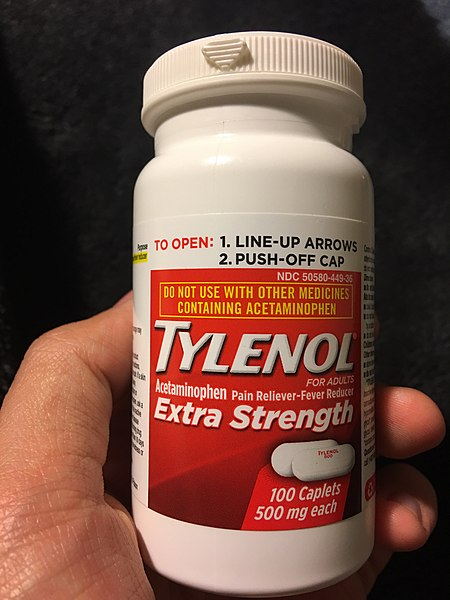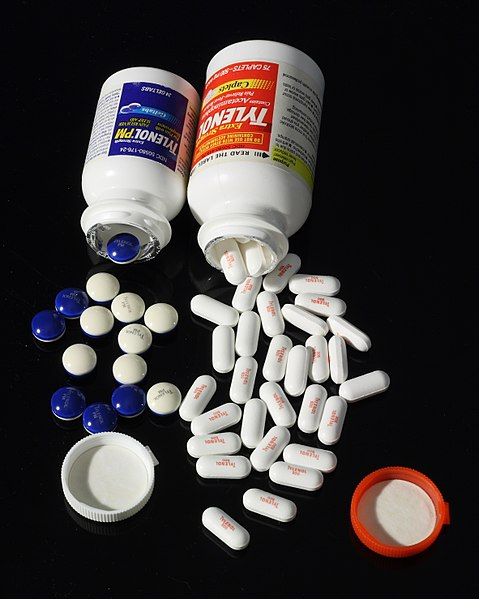One of the most common and popular drugs could be affecting you than just making your headache go away, suggests new evidence. This is none other than the most used medicine in the U.S. and other parts of the world — Acetaminophen is also known as paracetamol.
This medicine, sold widely under the brand names Tylenol and Panadol, increases risk-taking, reveals a new study that measured changes in people's behavior when under the influence of the drug. Baldwin Way, a neuroscientist at the Ohio State University said, "Acetaminophen seems to make people feel less negative emotion when they consider risky activities – they just don't feel as scared."
Way also said that with almost 25 percent of the population in the U.S. taking this medicine each week, "reduced risk perceptions and increased risk-taking could have important effects on society."

The Risky Medicine
This new finding provides additional evidence to other studies, suggesting that the effects of acetaminophen on pain reduction in people also extend to several psychological processes —lowering an individual's receptivity to hurt feelings, experiencing reduced empathy, and blunting cognitive functions.
The newly published research has shown that people's ability to perceive and calculate risks can be weakened or damaged when they take acetaminophen, available in more than 600 different kinds of over-the-counter and prescription medicines.These effects might be slight, but should not be overlooked, as the drug is widely consumed all over the U.S.
The Research and Discovery
In a series of experiments involving more than 500 students from the Ohio State University as participants, researcher Way and his team measured how one 1,000 mg dose of acetaminophen randomly assigned to study participants affected their risk-taking behavior, compared against placebos given to a control group.
In each of these experiments, the volunteers had to pump up an uninflated balloon on a computer screen, with every single pump earning imaginary money. The participants received instructions to earn as much imaginary money as possible but to make sure that the balloon doesn't pop up—if that happens, they will lose the money.
As a result, researchers found that the participants from the university who took the medicine engaged in significantly more risk-taking during the exercise, while the placebo group showed a more cautious and conservative approach.
The study noted that those on acetaminophen pumped and burst their balloons more than the other group. Way said, "If you're risk-averse, you may pump a few times and then decide to cash out because you don't want the balloon to burst and lose your money."
But as per the researcher, for those who consumed acetaminophen, as the balloon gets bigger, "we believe they have less anxiety and less negative emotion about how big the balloon is getting and the possibility of it bursting."

During two of the experiments, the volunteer students also filled out surveys, rating the level of risk they perceived in various hypothetical scenarios, including bungee jumping off a tall bridge, and driving a car without a seat belt. In one of the surveys, it was noticed that the group on acetaminophen did appear to reduce perceived risk compared to the control group. However, in another similar survey, the researchers did not observe the same effects.
Risk-taking attitude
Overall, the team concluded that there is a significant relationship between acetaminophen consumption and choosing more risk, even though the effects can be mild. The findings also indicate that the drug's apparent effects on risk-taking behavior could also be interpreted via psychological processes, like reduced anxiety.
"It may be that as the balloon increases in size, those on placebo feel increasing amounts of anxiety about a potential burst. When the anxiety becomes too much, they end the trial. Acetaminophen may reduce this anxiety, thus leading to greater risk-taking," explained the researchers.
Separate research in recent years found that in many medical situations, the pain-relief drug can be ineffective, and sometimes is no better than a placebo, in addition to causing other kinds of health issues.
However, despite the seriousness of these findings, acetaminophen remains one of the most used medications in the world, considered an essential medicine by the World Health Organisation (WHO), and recommended by the Centers for Disease Control and Prevention (CDC) as the primary drug people can take to ease symptoms if they think that they might have novel Coronavirus.









